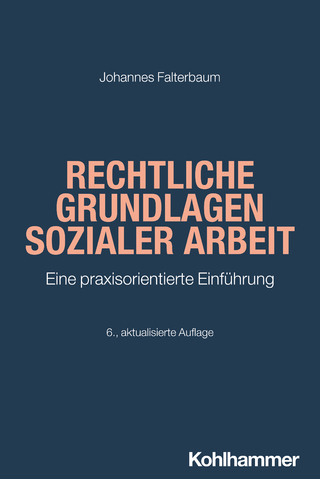
The New Social Question
Rethinking the Welfare State
Seiten
2024
Princeton University Press (Verlag)
978-0-691-26577-3 (ISBN)
Princeton University Press (Verlag)
978-0-691-26577-3 (ISBN)
How social and intellectual changes undermine our justifications for the welfare state
The welfare state has come under severe pressure internationally, partly for the well-known reasons of slowing economic growth and declining confidence in the public sector. According to the influential social theorist Pierre Rosanvallon, however, there is also a deeper and less familiar reason for the crisis of the welfare state. He shows here that a fundamental practical and philosophical justification for traditional welfare policies—that all citizens share equal risks—has been undermined by social and intellectual change. If we wish to achieve the goals of social solidarity and civic equality for which the welfare state was founded, Rosanvallon argues, we must radically rethink social programs.
Rosanvallon begins by tracing the history of the welfare state and its founding premise that risks, especially the risks of illness and unemployment, are equally distributed and unpredictable. He shows that this idea has become untenable because of economic diversification and advances in statistical and risk analysis. It is truer than ever before—and far more susceptible to analysis—that some individuals will face much greater risks than others because of their jobs and lifestyle choices. Rosanvallon argues that social policies must be more narrowly targeted. And he draws on evidence from around the world, in particular France and the United States, to show that such programs as unemployment insurance and workfare could better reflect individual needs by, for example, making more explicit use of contracts between the providers and receivers of benefits. His arguments have broad implications for welfare programs everywhere and for our understanding of citizenship in modern democracies and economies.
The welfare state has come under severe pressure internationally, partly for the well-known reasons of slowing economic growth and declining confidence in the public sector. According to the influential social theorist Pierre Rosanvallon, however, there is also a deeper and less familiar reason for the crisis of the welfare state. He shows here that a fundamental practical and philosophical justification for traditional welfare policies—that all citizens share equal risks—has been undermined by social and intellectual change. If we wish to achieve the goals of social solidarity and civic equality for which the welfare state was founded, Rosanvallon argues, we must radically rethink social programs.
Rosanvallon begins by tracing the history of the welfare state and its founding premise that risks, especially the risks of illness and unemployment, are equally distributed and unpredictable. He shows that this idea has become untenable because of economic diversification and advances in statistical and risk analysis. It is truer than ever before—and far more susceptible to analysis—that some individuals will face much greater risks than others because of their jobs and lifestyle choices. Rosanvallon argues that social policies must be more narrowly targeted. And he draws on evidence from around the world, in particular France and the United States, to show that such programs as unemployment insurance and workfare could better reflect individual needs by, for example, making more explicit use of contracts between the providers and receivers of benefits. His arguments have broad implications for welfare programs everywhere and for our understanding of citizenship in modern democracies and economies.
Pierre Rosanvallon is professor at the Collège de France and director of studies at the École des Hautes Études en Sciences Sociales in Paris. His many books include Democratic Legitimacy: Impartiality, Reflexivity, Proximity (Princeton) and The Demands of Liberty: Civil Society in France since the Revolution. Nathan Glazer (1923–2019) was professor emeritus of education and sociology at Harvard University.
| Erscheinungsdatum | 26.04.2024 |
|---|---|
| Reihe/Serie | New French Thought Series |
| Übersetzer | Barbara Harshav |
| Verlagsort | New Jersey |
| Sprache | englisch |
| Maße | 156 x 235 mm |
| Themenwelt | Sozialwissenschaften ► Pädagogik ► Sozialpädagogik |
| Sozialwissenschaften ► Politik / Verwaltung ► Staat / Verwaltung | |
| Sozialwissenschaften ► Soziologie | |
| ISBN-10 | 0-691-26577-1 / 0691265771 |
| ISBN-13 | 978-0-691-26577-3 / 9780691265773 |
| Zustand | Neuware |
| Informationen gemäß Produktsicherheitsverordnung (GPSR) | |
| Haben Sie eine Frage zum Produkt? |
Mehr entdecken
aus dem Bereich
aus dem Bereich
Grundlagen - Konzepte - Methoden
Buch | Softcover (2023)
Kohlhammer (Verlag)
CHF 47,60
ein Lehrbuch zum Kita-Management
Buch | Softcover (2023)
Kohlhammer (Verlag)
CHF 64,40
eine praxisorientierte Einführung
Buch | Softcover (2024)
Kohlhammer (Verlag)
CHF 61,60


